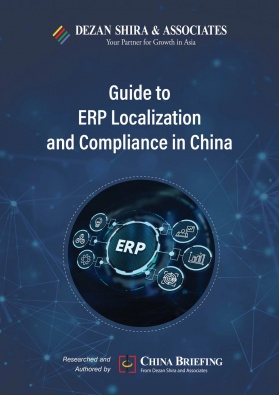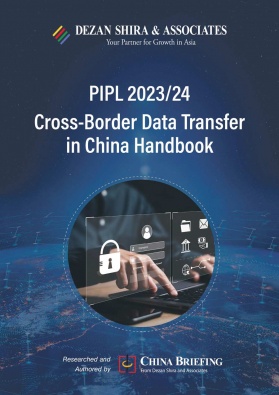Bridging Continents: Strengthening China-South Africa Economic Ties for Mutual Growth
China and South Africa have cultivated a strong economic and diplomatic relationship, with trade and investment ties expanding across multiple industries. As China-South Africa relations continue to deepen, new opportunities emerge for South African businesses seeking to enter the Chinese market, particularly in sectors such as mining, agriculture, renewable energy, and technology.
On February 20, 2025, South African President Cyril Ramaphosa met with Chinese Foreign Minister Wang Yi in Pretoria, reaffirming both nations’ commitment to deepening economic cooperation. Their discussions centered on infrastructure development, trade facilitation, and technology transfer, underscoring a shared vision for fair and sustainable economic collaboration. This visit follows Chinese President Xi Jinping’s official trip to South Africa in 2023, where both leaders reinforced their commitment to mutual growth through the Belt and Road Initiative (BRI) and other strategic frameworks.
China has been South Africa’s largest trade partner for over a decade, with bilateral economic exchanges continuously expanding. South Africa’s mineral exports, agricultural products, and manufactured goods have gained strong traction in the Chinese market, while Chinese investment in South Africa has surged across key sectors, including finance, manufacturing, and renewable energy.
As China advances its economic transformation and industrial modernization, South African businesses have unique opportunities to increase exports, attract investment, and expand collaboration in critical sectors such as green energy, mining, and high-value agriculture. With both nations committed to fostering a more dynamic economic partnership, these developments signal a new era of cooperation that could shape the broader landscape of China-Africa relations.
In this article, we explore the key areas of economic collaboration, the challenges and opportunities in bilateral trade, and the broader geopolitical implications of China-South Africa relations in the evolving global landscape.
China-South Africa diplomatic developments
China and South Africa established formal diplomatic relations in 1998, marking the beginning of a deepening political and economic partnership. In 2010, the two countries elevated their ties to a Comprehensive Strategic Partnership, reinforcing cooperation in trade, investment, and diplomatic initiatives.
A cornerstone of the relationship is South Africa’s membership in BRICS (Brazil, Russia, India, China, South Africa), which has facilitated collaboration on global economic governance and multilateral trade. South Africa’s participation in China-led initiatives such as the BRI has also positioned it as a key gateway for Chinese investment in Africa.
Expanding trade relations between China and South Africa
China and South Africa have developed a deep economic partnership over the past two decades, with bilateral trade growing from just US$1.34 billion in 2000 to US$34.18 billion in 2023. However, this rapid expansion has been accompanied by a persistent trade imbalance that heavily favors China.
South Africa primarily exports raw materials—such as ores, slag, ash, and iron and steel—while importing a vast range of manufactured goods, including electronics, machinery, vehicles, and apparel.
| South Africa’s Top Five Exports to China, 2024 | |
| Product | Value (US$, Billion) |
| Natural or cultured pearls, precious or semi-precious stones, precious metals, metals clad | 13.45
|
| Ores, slag and ash | 12.35 |
| Iron and steel | 1.91 |
| Copper and articles thereof | 1.04 |
| Edible fruit and nuts; peel of citrus fruit or melons | 0.49 |
| Source: ITC Trade Map | |
|
South Africa’s Top Five Imports from China, 2024 |
|
| Product | Value (US$, Billion) |
| Electrical machinery and equipment and parts thereof; sound recorders and reproducers, television . . . | 5.70
|
| Nuclear reactors, boilers, machinery and mechanical appliances; parts thereof | 4.23 |
| Vehicles other than railway or tramway rolling stock, and parts and accessories thereof | 1.36 |
| Iron and steel | 0.84 |
| Plastics and articles thereof | 0.71 |
| Source: ITC Trade Map | |
The trade relationship has been shaped by strategic frameworks like the Forum on China-Africa Cooperation (FOCAC) and BRICS, which have facilitated high-level economic dialogue and investment agreements. Since 2008, China has been South Africa’s largest trading partner, surpassing the United States, while South Africa remains China’s most significant trade partner in Africa.
Despite these strong ties, South Africa’s trade deficit with China reached US$9.71 billion in 2023, raising concerns about long-term economic sustainability. While China’s demand for mineral resources has fueled South African exports, local beneficiation and industrial diversification remain limited. The 9th FOCAC Ministerial Conference in 2024 highlighted the need for South Africa to expand agricultural exports and invest in value-added industries to reduce dependency on raw material exports.
At the same time, South African industries—especially small and medium enterprises (SMEs)—face challenges due to competition from low-cost Chinese imports in sectors like textiles and electronics. Calls for tariff protections and import substitution policies are growing as South Africa looks to balance economic cooperation with domestic industrial growth.
Growing Chinese investment in South Africa
Chinese investment in South Africa has seen substantial growth, particularly in infrastructure, energy, and manufacturing. As of 2023, China’s outward foreign direct investment (FDI) stock in South Africa reached approximately US$5.84 billion, and the cumulative investment value has exceeded US$10 billion, according to the China Ministry of Commerce (MOFCOM). South Africa remains the top destination for Chinese investment in Africa, hosting over 170 Chinese firms operating in diverse sectors such as finance, home appliances, automobiles, mining, and energy.
Key areas of Chinese investment in South Africa include:
- Mining and resources: Chinese companies like Zijin Mining and China National Gold Group have expanded their presence in South Africa’s platinum and rare earth minerals sector, essential for renewable energy technologies. This strengthens supply chain cooperation between the two nations.
- Infrastructure and transport: Chinese firms are actively involved in upgrading South Africa’s railways, ports, and highways, improving trade connectivity and boosting logistics efficiency. This aligns with China’s Belt and Road Initiative (BRI), which prioritizes infrastructure investment across Africa.
- Renewable energy: China has been a key player in South Africa’s clean energy transition. In July 2023, Power China signed a deal for the Darmragt 123-megawatt photovoltaic (PV) project with Irish developer Mainstream, marking the first large-scale ground PV power plant project by a Chinese firm in South Africa. This project will supply 300 million kilowatt-hours of clean energy to South Africa’s grid annually, helping to address the country’s power crisis. At the China-South Africa New Energy Investment and Cooperation Conference (June 2023), Chinese Ambassador Chen Xiaodong emphasized that both nations are working to accelerate energy transitions and promote sustainable economic development. Chinese firms like State Grid Corporation and Longi Solar are heavily investing in wind, solar, energy storage, and power transmission projects in South Africa.
- High-tech manufacturing and industrialization: Chinese investment has also fueled South Africa’s manufacturing sector. A major success story is the Hisense South African Industrial Park, launched in 2013 under the China-Africa Development Fund. This project produces 1 million TVs and 500,000 refrigerators annually, supplying not only Africa but also exporting to Europe. Moreover, it created over 1,000 local jobs, with 70 percent of management positions held by South Africans, while representing the largest home appliance factory invested in by a Chinese firm in South Africa in the past four decades.
Undoubtedly, South Africa has been actively improving its business climate to attract more foreign investors. According to Xinhua News Agency, the South African government aims to mobilize 2 trillion rand (US$111 billion) in new investments between 2023 and 2028. With China’s continued involvement, the bilateral industrial and supply chain cooperation is expected to deepen, setting a strong template for Global South economic partnerships and driving economic recovery beyond Africa.
Meanwhile, South African investment in China remains modest but is growing, with key sectors including retail, financial services, and food exports. Companies like Naspers (through Tencent) and Standard Bank have successfully expanded their operations in China.
China-South Africa DTA
The Double Taxation Avoidance Agreement (DTA) between China and South Africa was signed on April 25, 2000, and came into effect on December 18, 2001. This agreement ensures that businesses and individuals are not taxed twice on the same income in both countries, reducing financial burdens and fostering a more attractive investment environment.
The DTA establishes clear rules on tax residency, withholding taxes on dividends, and capital gains taxation, benefiting companies and individuals engaged in cross-border trade and investment between China and South Africa. It also enhances economic cooperation by providing greater tax certainty and preventing tax evasion.
The South African taxes covered by the treaty include:
- Personal Income Tax (PIT);
- Corporate Income Tax (CIT); and
- Dividends Tax.
Meanwhile, the Chinese taxes covered by the treaty include:
- Individual Income Tax (IIT);
- Enterprise Income Tax (EIT); and
- Taxes on capital gains.
The agreement continues to play a key role in strengthening bilateral economic relations, supporting trade and investment flows between the two BRICS nations.
Opportunities for South African companies in China
Mining and raw materials
China’s demand for South African minerals, particularly platinum, iron ore, and rare earth elements, remains strong. South African mining companies can expand their market share by leveraging China’s increasing need for industrial and technological minerals.
Agriculture and food exports
China’s growing middle class is driving demand for high-quality agricultural products, particularly citrus, wine, beef, and nuts. South African agribusinesses focusing on organic, premium, and traceable food products can capitalize on this trend.
Renewable energy and infrastructure
China is a leader in renewable energy technology, and South Africa’s transition to green energy presents significant collaboration opportunities. Chinese firms are already investing in South Africa’s solar, wind, and battery storage projects, creating partnerships for local companies.
Technology and telecommunications
South Africa’s tech sector, particularly in fintech, software development, and digital services, aligns well with China’s advancements in AI, e-commerce, and cloud computing. South African firms can explore partnerships with major Chinese tech companies to expand digital trade and innovation.
Financial services and banking
With increased Chinese investment in South Africa’s financial sector, opportunities exist for cross-border banking, fintech innovation, and digital payment solutions. Companies specializing in blockchain technology, financial analytics, and wealth management can find growth avenues in China’s expanding financial services market.
About Us
China Briefing is one of five regional Asia Briefing publications, supported by Dezan Shira & Associates. For a complimentary subscription to China Briefing’s content products, please click here.
Dezan Shira & Associates assists foreign investors into China and has done so since 1992 through offices in Beijing, Tianjin, Dalian, Qingdao, Shanghai, Hangzhou, Ningbo, Suzhou, Guangzhou, Haikou, Zhongshan, Shenzhen, and Hong Kong. We also have offices in Vietnam, Indonesia, Singapore, United States, Germany, Italy, India, and Dubai (UAE) and partner firms assisting foreign investors in The Philippines, Malaysia, Thailand, Bangladesh, and Australia. For assistance in China, please contact the firm at china@dezshira.com or visit our website at www.dezshira.com.
- Previous Article Shanghai Streamlines Data Export with New Data Negative List
- Next Article China’s Two Sessions 2025: Key Takeaways from the Government Work Report









